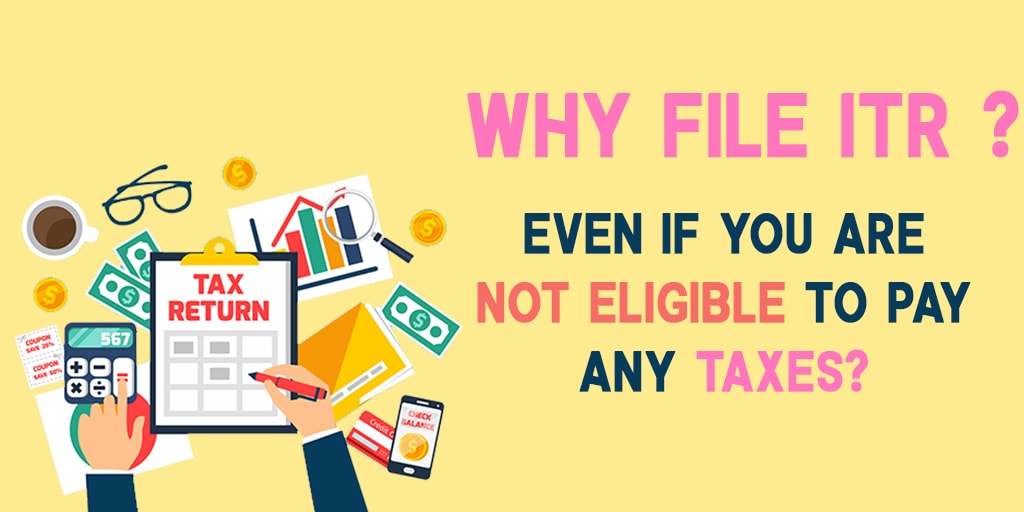
Which is the better of the two – ELSS or PPF?
May 29, 2019
How to Understand Your Payslip and Tax Deduction Scheme in India
July 13, 2019
35-year old Sameer Dahanukar had a modest income as a teacher. When he felt he was ready to buy a new home, he applied for a home loan. But he got a nasty surprise about the rejection of application for one key reason – He hadn’t filed his income tax returns (ITR) for the past 5 years. Sameer is one of the many individuals who assume that being below the income tax exemption limit of Rs. 2.5 lakhs makes one free from the process of filing ITR. However, this is not the case.
That was about Sameer.
What about you? Have you filed ITR returns?
Yes/No?
Read below to know about more interesting information about filing ITR.
Who should file ITR?
As a responsible citizen of India, it is our duty to declare all our assets and income even if we don’t fall in the tax paying bracket. As per the Income Tax Department, if your Gross Total Income (i.e. before applying any deductions like those u/s 80C) is above Rs. 2.5 lakhs.
However, like Sameer in the story above, it is best to keep proof of the accumulation of funds and income via ITR filing, even if your gross income is below Rs. 2.5 lakhs.

Who is exempted from filing for ITR?
Any person whose gross total income doesn’t exceed Rs. 2.5 lakhs in a financial year (this number is Rs. 3 lakhs for senior citizens). This excludes the tax rebate of Rs. 12,500 (proposed in the last Union Budget 2019).
Why it is beneficial to file ITR even with zero tax liability?
There are many benefits of filing ITR returns. It acts as proof of investments, income, and funds received. At many places like visa processing, this strengthens your case. This ensures you are totally tension-free in the below scenarios:

1 – For claiming a tax refund
It may happen that your employer may have deducted excess tax, without considering your actual investment made for the year. To claim for the excess refund, it is crucial to file ITR where you get the provision to demand a refund from the IT officials. If you don’t file ITR, you lose out on the chance to claim for refund on the excess taxes paid.
2 – For Visa processing
If you have set sights on foreign land, it is mandatory to have the necessary ITR filings to show proof of earning income. While employees of a company may show their employer certificate, there is so similar document in case of a self-employed person. In this scenario, an ITR document will come in handy to show the proof of earning.
3 – For loan processing
Not just visas, many types of loans too require ITR fillings for multiple years to be shown as proof of income. Just like Sameer in the story above, it will be disappointing to face loan rejection just because your ITR filings were not in order. ITR will depict the extent of income earned, which will further decide the quantum of loan that a person can take.
4 – To carry forward losses
I-T rules allow a person to carry forward losses to set them off in lieu of capital gains But this can happen only when the person has been filing ITR for multiple years. By filing returns you get to reduce the tax liability of subsequent years by carrying forward a portion of the losses to set off against capital gains made in a given financial year.

5 – Strong proof of income
It will be very tedious to explain the source of income of the last 6-8 years across different heads. While they were small initially, they may have grown enough to invite the taxman’s examination. In this case, the ITR filings provide an authentic source of information of the incomes earned from various sources over the last few years.

Conclusion
These pointers aptly denote the various benefits one receives on filing ITR on time, even though he/ she may not fall under the tax bracket. Looking at these advantages, it makes perfect sense for a person to regularly file ITR irrespective of the gross total income earned.

 +91 9004789500
+91 9004789500
4 Comments
Thanks for sharing your precious information. Now I now the value of IT return.
Thank you
Very good work.. Keep it up
Thank you